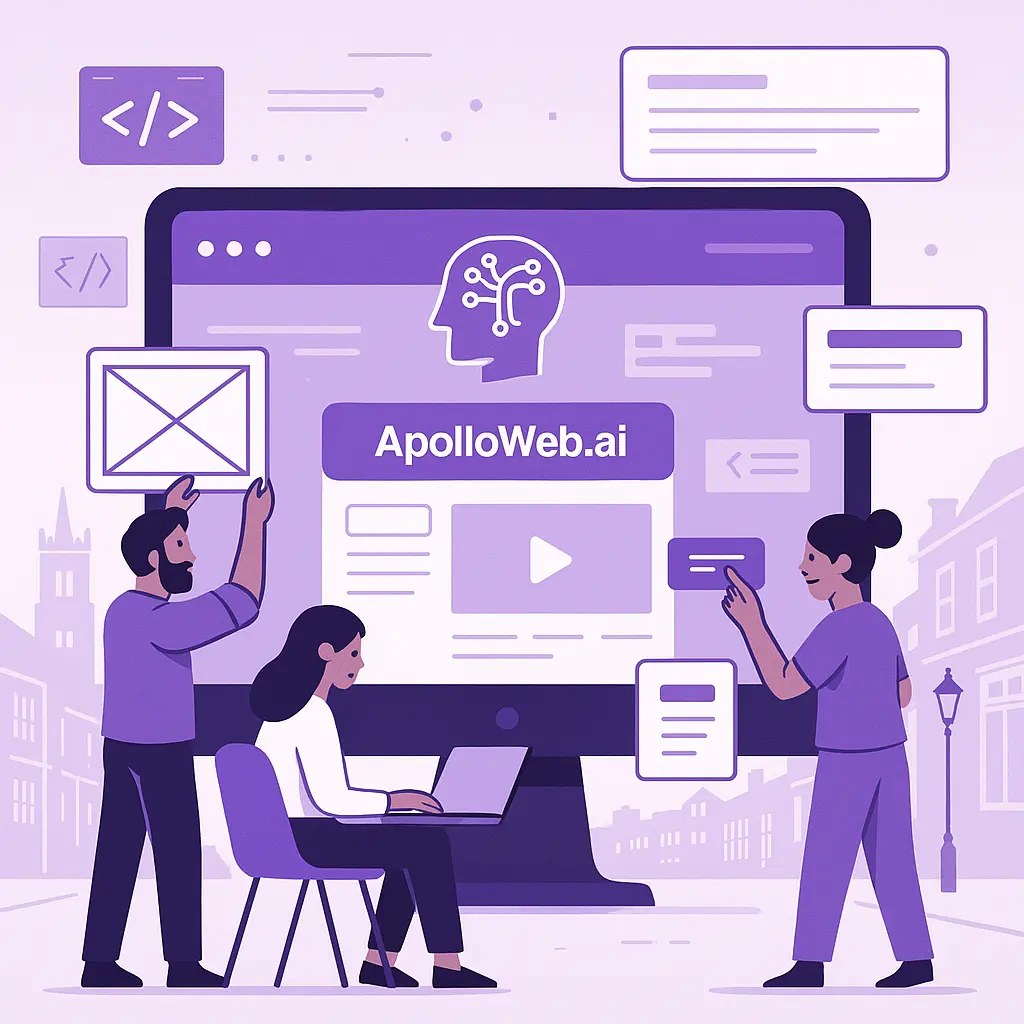In today's dynamic digital landscape, mastering the optimisation of Google Questions and Answers (Google Q&A) is a game-changer for businesses seeking to enhance organic traffic, improve search rankings, and amplify user engagement. This article unpacks how professional SEO services deploy strategies like keyword research, schema markup, and local SEO to elevate Google Q&A performance, driving visibility and authority in Google search results.
What Is Google Questions and Answers (Google Q&A) and Why Does It Matter for SEO?
Google Questions and Answers is an interactive feature found primarily on Google My Business profiles and in Search Engine Results Pages (SERPs). It enables users to ask specific questions about a business or topic and receive answers from businesses or community members directly within the search interface.
Optimising Google Q&A is crucial because it enhances user engagement by providing immediate, relevant information—reducing friction in the customer journey. This interaction not only boosts organic traffic but also improves user experience, a key component of Google’s ranking algorithms.
Moreover, well-optimised Q&A content can appear as rich snippets or featured snippets, increasing a website’s visibility on SERPs and attracting more clicks.
For local SEO, Google Q&A plays an even bigger role by driving trust and authority within a geographic area. When effectively managed through local SEO strategies, businesses can improve their Google ranking, attracting audiences who are most likely to convert.
How Does SEO Optimisation Improve Google Q&A Performance?
SEO optimisation for Google Q&A involves applying standard SEO principles with a focus on question answering content. By ensuring that answers are high-quality, relevant, and aligned with search intent, SEO specialists improve the likelihood that Q&A sections will be surfaced prominently in Google search.
Google’s algorithm updates continuously refine how question and answer content is evaluated. Ranking factors such as content accuracy, user engagement signals, and website authority directly influence the prominence of Q&A content.
Optimised Q&A contributes to overall website authority by showcasing expertise and building topical relevance, which signals to Google that the site is a trustworthy source of information. This, in turn, supports better rankings across related queries.
SEO companies tailor strategies to maintain quality, update content regularly, and integrate backlinking to bolster authority, ensuring consistent improvement in Google Q&A performance.
What Role Does Keyword Research Play in Optimising Google Questions and Answers?
Keyword research forms the backbone of effective Google Q&A optimisation. SEO experts concentrate on uncovering question-based long-tail keywords that reflect real user queries.
Long-tail keywords and semantic search concepts help identify question types like “how,” “what,” “why,” and location-specific inquiries. Aligning answers with these keywords ensures that content matches the user's search intent precisely, elevating relevancy.
Differentiating between informational, transactional, and navigational question types allows SEO professionals to craft tailored answers that maximise effectiveness and encourage further user interaction.

Strategic keyword research positions the Q&A content to capture voice search traffic and searches with natural language, thereby boosting organic reach.
How Is Schema Markup Used to Enhance Google Q&A Visibility?
Schema markup, specifically FAQ and Q&A schemas, is structured data added to web pages to help search engines understand the context of questions and answers.
Implementing FAQ schema on relevant pages increases the chances of Google displaying rich snippets or featured snippets for those questions, making your content stand out in SERPs.
Structured data connects content to Google’s Knowledge Graph, improving indexing and enhancing search visibility.
Best practices for implementation include:
- Adding JSON-LD or Microdata format schemas to Q&A or FAQ sections Ensuring accuracy and consistency of question and answer pairs Validating schema with tools like Google’s Rich Results Test Updating markup regularly to reflect current content
Proper schema usage directly impacts click-through rates and search prominence by making answers immediately accessible and visually appealing.
What Are Best Practices for Content Optimisation in Google Q&A?
Content optimisation focuses on crafting accurate, clear, and concise answers that align with E-A-T principles: expertise, authoritativeness, and trustworthiness.
High content quality means answers must be factually correct, comprehensive yet easy to digest, and directly address the question.
SEO agencies emphasise readability with structured formatting—bullets, short paragraphs, and headers—to improve user experience and engagement.
Conducting competitive analysis and SEO audits helps identify gaps in current Q&A content and areas for refinement, ensuring the information remains relevant and superior to competitors.
Consistent content updates based on evolving user queries and algorithm changes keep the Q&A section fresh and valuable.
How Can Local SEO and Google My Business Integration Boost Q&A Optimisation?
Integrating Google Q&A within Google My Business profiles enables businesses to manage questions proactively, fostering trust and local relevance.
User reviews connected to Q&A add social proof, increasing credibility and encouraging potential customers to engage.
SEO services leverage local SEO tactics to optimise Q&A content with geo-specific keywords, boosting local search rankings and attracting nearby customers.
Timely responses to user questions demonstrate active engagement and customer care, which can positively influence Google’s perception of business relevance.
This integration significantly elevates website traffic and conversions from local search queries.
What Technical SEO Elements Impact Google Q&A Optimisation?
Technical SEO lays the foundation for Google Q&A content to be efficiently crawled and indexed.
Fast page speed and mobile optimisation ensure that Q&A content loads promptly and delivers seamless user experience across devices.
A well-structured website https://basildon-essex-is178.theglensecret.com/local-seo-tips-for-small-shops-a-complete-how-to-guide architecture facilitates question discovery through logical organisation of FAQs and Q&A pages.

Using sitemaps and correctly configured robots.txt files guarantees that Q&A content is accessible to search engine crawlers.
Internal linking connects related content, reinforcing topical authority, while external linking to authoritative sources adds credibility.
Maintaining clean on-page SEO elements such as meta tags and heading structure supports the clarity and relevance of Q&A content.
How Do SEO Tools and Rank Tracking Aid in Google Q&A Optimisation?
SEO tools like SEMrush, Ahrefs, and Google Search Console provide invaluable insights into how Q&A content performs.
Rank tracking monitors keyword positions specific to question queries, enabling SEO professionals to measure improvements or identify declines promptly.
Regular SEO audits highlight technical issues, content gaps, and opportunities for schema enhancement.
Competitive analysis uncovers trending question topics and emerging user intents, guiding strategic content creation.
These tools collectively help maintain high search visibility and strengthen domain authority through continuous optimisation cycles.
Frequently Asked Questions
Q1: What types of questions perform best in Google Q&A?
A1: Long-tail, specific questions that target “how,” “what,” “why,” and localised queries tend to perform best. They closely match user search intent and generate higher engagement.
Q2: How does implementing FAQ schema benefit my Google Q&A rankings?
A2: FAQ schema helps Google interpret your content structure, making it eligible for rich snippets that significantly improve visibility and click-through rates on SERPs.
Q3: Can Google Q&A help improve my local SEO?
A3: Absolutely. Managing Q&A via Google My Business boosts local relevance, user trust, and interaction, all of which contribute to higher local search rankings.
Q4: What are common mistakes to avoid when optimising Google Questions and Answers?
A4: Avoid vague or incomplete answers, keyword stuffing, ignoring schema markup, and failing to match user intent—these issues reduce the effectiveness of your optimisation efforts.
Q5: How often should I update my Google Q&A content?
A5: Regular updates are essential. Refresh your content to reflect new questions, recent developments, or changes in search algorithms to maintain relevance and rankings.

In summary, optimising Google Questions and Answers through a combination of targeted keyword research, strategic schema markup, quality content creation, and technical SEO ensures enhanced visibility and user engagement. Leveraging local SEO through Google My Business further amplifies these benefits, driving organic traffic and elevating search rankings. Adopting these SEO service techniques prepares businesses to thrive in the evolving digital landscape of 2025 and beyond.